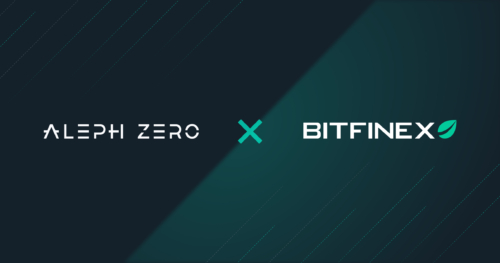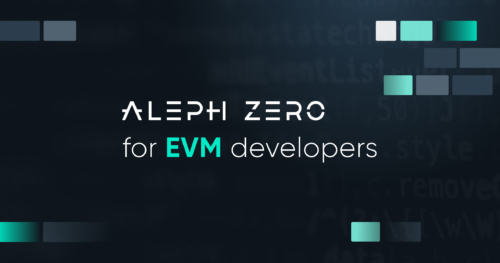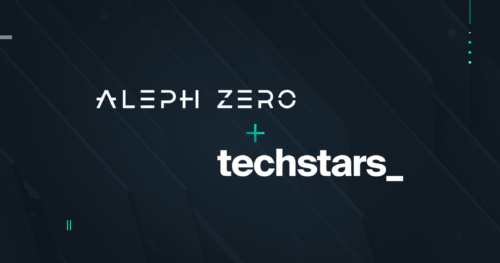EFP: Progress and Values. Podcast Key Takeaways.
Sep 20, 2023
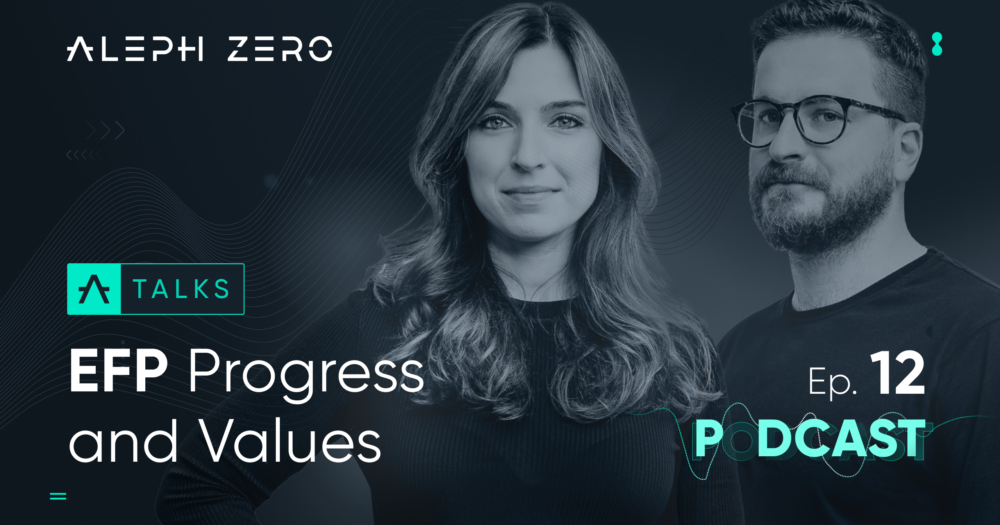
The 12th episode of the Aleph Zero Podcast revisits the Ecosystem Funding Program for a recap on the progress that has been made in recent months, encompassing both the headway made by the use cases as well as changes that the program itself underwent as a result of new experience gained by the team.
Listen to the full episode on the platform of your choice
TL;DL
Too Long; Didn’t Listen
- The podcast episode is recorded fresh off getting back from ETHWarsaw. During the conference, the team opted to showcase the projects building in the ecosystem rather than once again presenting Aleph Zero.
- Additionally, the Aleph Zero team organized a hackathon during which the competing teams demonstrated incredible skill and creativity to deliver exciting concepts for the ecosystem.
- Some of the winners included:
- A team that made a “no-code solution” creator for designing smart contracts.
- Another team made a smart contract-controlled drink dispenser.
- One team made an app called “Handshake” that rewards you for having real-life person-to-person interactions.
- The hackathons organized by Aleph Zero serve as a networking platform for developers to meet and play with the protocol running the network.
- To apply for the EFP, teams must share their project vision, milestones, and required assistance both in terms of grants as well as help with marketing and legal matters. Additionally, the code base must be made open source.
- Over 200 projects have applied to the EFP since its launch. Of those 200, only 35 have been accepted and have received assistance through the grant program.
- Besides investing in more typical Web3 projects, Aleph Zero is also interested in supporting teams that provide valuable tooling for ink! developers.
- One of the unique features of the EFP is the marketing, legal, and technical support offered by the program.
- For example, projects that are part of the EFP can take advantage of the marketing support offered by Serotonin or the security audits provided by Kudelski Security.
- Web3 code bases may seem simple, but getting it “right” is crucial upon Mainnet launch, as developers only get one shot.
Aleph Zero at ETHWarsaw
The Aleph Zero team once again visited ETHWarsaw, a fantastic local event that connects Web3 developers, investors, and enthusiasts. To promote the growing ecosystem, the team opted to showcase the use cases building upon Aleph Zero by setting up a booth dedicated to the most promising projects currently being developed.
Two additional highlights of the event were the hackathon and party organized by Aleph Zero. The former was a fantastic opportunity to meet talented developers who astounded with their skill and creativity. Some highlights of the hackathon were the teams that presented the following projects:
- A “no-code solution” creator for designing smart contracts.
- A smart contract-controlled drink dispenser.
- An app called “Handshake” that rewarded users for having real-life person-to-person interactions.
The hackathons organized by the Aleph Zero team are a valuable source of inspiration as developers join to play with the code and explore the limits of what it can do. They also serve as a springboard for later turning these ideas into functioning projects through the EFP’s support.
The party hosted by Aleph Zero was a resounding success and served as an excellent occasion for networking and bringing together Web3 enthusiasts under one roof.
Building on the EFP
Since launching the EFP, over 200 projects have applied, with only 35 having been accepted. To apply for the EFP, teams must share their project roadmap, milestones, and details regarding the nature of the assistance they require, whether it be financial or help with marketing and legal matters. Additionally, the code base of projects launched as part of the Aleph Zero Ecosystem must be made open source. What truly differentiates the EFP is the marketing, legal, and technical support offered by the program, as assistance in these fields is imperative for projects to truly succeed in delivering valuable products. Projects that are members of the EFP can take advantage of the marketing support offered by Serotonin or the security audits provided by Kudelski Security.
One significant program change to the EFP is Aleph Zero’s wish to distribute smaller grants to a larger number of projects while also focusing on the 35 use cases that currently make up the ecosystem.
Besides investing time in more Web3-oriented projects, the team has been keenly involved in supporting developers working on tooling for ink! This is part of our efforts to assist the development of the ink! ecosystem.
Listen podcast
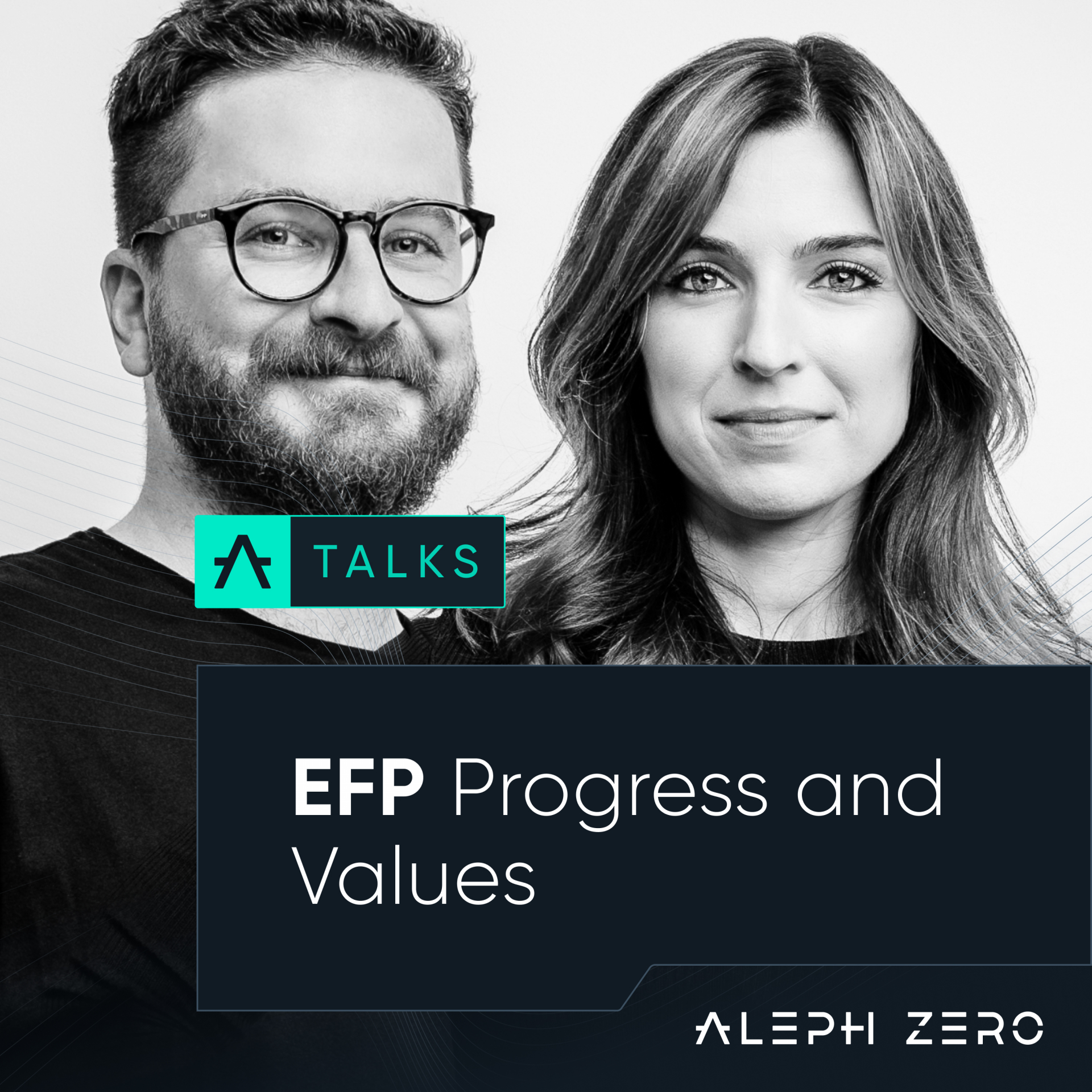
EP. 12 Exploring the Ecosystem Funding Programs Milestones & Values
In the 12th episode, we meet with Magdalena Oleksy and Piotr Moczurad, who are responsible for the headway made by the Ecosystem Funding Program (EFP). Expect to learn about the progress the EFP and the onboarded use cases have made, as well as about the values the program wishes to uphold for creating an invigorating Web3 ecosystem.
